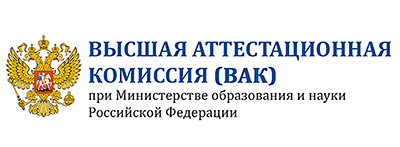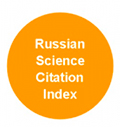Dynamics of attitudes in the sphere of intimate relationships in Russia
Abstract
The processes of modernization are the central research topic of the social sciences. As R. Nisbet noted, the main interest of modern sociology lies in the study of the processes of transition from a closed, hierarchical society to an open, achievement-oriented one. The most important aspect of modernization is the shift in the principles of social regulation from prohibitions imposed externally towards personal freedom and responsibility. One of the behavioral spheres where such shifts are most noticeable is that of sexual relations. In modern societies, sexual pleasure and satisfaction are recognized as important elements of private life that have the right to exist as such, and not only as a necessary condition for procreation.
Modernization is a global process, but the phase differences in different countries are significant. The article analyzes the dynamics of attitudes towards sexual behavior, and shows the place of Russia among other countries. Calculations are based on sociological survey data, primarily the International Social Survey Programme (ISSP), which makes it possible both to track the dynamics of attitudes in time and to conduct cross-country comparisons. All data are obtained from the Joint Economic and Sociological Data Archive of the Higher School of Economics: http://sophist.hse.ru.
A totalitarian state strives to control all domains of private life. Eliminating erotic culture, denigrating sex as dirty and reprehensible, is an important element of the system of totalitarian control. Reducing state control increases permissiveness in the sphere of intimacy: the liberalization of attitudes towards the sexual behavior of Russians was recorded as far back as the 1960s, and only intensified with perestroika and democratization. Russians today have a more than liberal attitude to extramarital sex, and are fairly permissive regarding premarital sex. Attitudes to homosexual relations, however, are more complex. A certain liberalization of views seen in the 1990s has been replaced by an increased rigidity in the wake of the state’s more recent conservative policy. But though the strengthening of these conservative trends in state policy has affected the dynamics of attitudes towards sexual behavior, it cannot reverse the main trends towards a diversity of sexual practices and individual responsibility for one’s choices.
Downloads
References
Bocharova O. A. (1994). Seksual'naya svoboda: slova i dela [Sexual freedom: words and deeds] // Chelovek [Man]. 5: 98-107.
Fabrikant M.S., Magun V.S. (2014). Semeynyye tsennosti rossiyan i yevropeytsev [Family values of Russians and Europeans] // Demoscope Weekly. №613-614 URL: http://www.demoscope.ru/weekly/2014/0613/tema01.php (accessed: 30.10.2017).
Golod S.I. (1999). Seksual'naya emansipatsiya zhenshchin i problema Drugogo [Sexual emancipation of women and the problem of another] // Zhurnal sotsiologii i sotsial'noy antropologii [Journal of sociology and social anthropology]. 2 (6): 105-114. URL: http://www.jourssa.ru/?q=ru/1999_2 (accessed: 30.10.2017)
Katolicheskaya entsiklopediya [The Catholic Encyclopedia] (2011). Vol. IV. Moscow: Izdatel'stvo frantsiskantsev. VIII s. + 1962 stb .; il.
Kon IS (2010). Seksual'naya kul'tura v Rossii: Klubnichka na berezke. 3-ye izdaniye, ispravlennoye i dopolnennoye [Sexual Culture in Russia: Strawberry on the Birch, 3rd edition, revised and enlarged]. Moscow: Vremya. 608 p.
Nisbet R. (2007). Progress: istoriya idei [History of the Idea of Progress]. Moscow: IRISEN: 557 p.
Orwell G. (1989). “1984” i esse raznykh let [“1984” and essays of different years]. Moscow: Progress: 384.
Sakevitch V. (2005). Chto bylo posle zapreta aborta v 1936 godu [What happened after the abortion ban in 1936] // Demoscope Weekly. № 221-222. http://www.demoscope.ru/weekly/2005/0221/reprod01.php (accessed: 30.10.2017).
Sol’ts A. (1937). Abort i alimenty [Abortion and alimony] // Trud [Labor]. 1937. 27 April. № 97. URL: http://www.demoscope.ru/weekly/2005/0221/reprod01.php (accessed: 30.10.2017).
Temkina A. (2008). Seksual'naya zhizn' zhenshchiny mezhdu podchineniyem i svobodoy [Sexual life of a woman between obedience and freedom]. SPb.: Izdatel’stvo EUSPb: 376 p.
Tolts M.S. (2014). Ot abortnogo termidora k zakonodatel'nomu liberalizmu: Politika v oblasti brachno-semeynykh otnosheniy kak zerkalo istorii SSSR [From abortive Thermidor to legislative liberalism: the policy in the field of marriage and family relations as a mirror of the history of the USSR] // Razvitiye naseleniya i demograficheskaya politika. Pamyati A. YA. Kvashi [Population development and demographic Policy. In memory of A. Ya. Kvasha]. Seriya “Demograficheskiye issledovaniya”, vypusk 25. M .: Prospekt: 139-150.
Vishnevsky A. G. (2004). Modernizatsiya i kontrmodernizatsiya: ch'ya voz'met? [Modernization and counter-modernization: Who will Take It?] // Obshchestvennyye nauki i sovremennost' [Social sciences and modernity]. 1: 17-25.
Zakharov S.V. (2015). Braki i razvody v sovremennoy Rossii [Marriages and divorces in modern Russia] // Demoscope Weekly. № 625 - 626. URL: http://www.demoscope.ru/weekly/2015/0625/tema02.php (accessed: 30.10.2017).
























